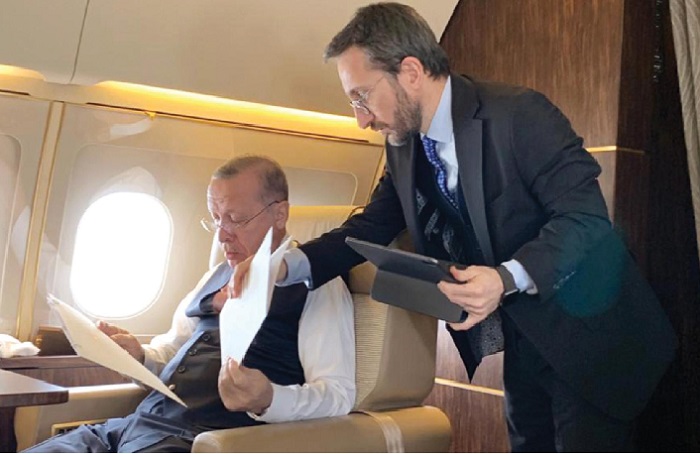Levent Kenez/Stockholm
Turkish President Recep Tayyip Erdogan dismissed his longtime communications chief, Fahrettin Altun, on July 10, appointing Deputy Foreign Minister Burhanettin Duran as his replacement. The reshuffle marks a significant shift within Erdoğan’s inner circle and points to a deeper power struggle among factions loyal to his family. With this latest dismissal, the National Intelligence Organization (MİT) has further strengthened its position.
Altun, who had held the position since 2018, became one of the most powerful figures in the Turkish cabinet after the country adopted an executive presidential system in 2017. With a virtually unlimited budget and direct access to Erdogan, Altun was tasked with managing the president’s personal communications, directing state propaganda, overseeing pro-government troll networks and exercising control over nearly every major media outlet in the country.
During his tenure Altun was instrumental in shaping narratives favorable to the government, often resorting to disinformation tactics including the release of manipulated videos targeting opposition leaders. He decided who would appear on television, who would serve as editors or columnists and which media outlets would receive government advertising revenue. His decisions were often made in consultation with Erdogan’s family circle, especially his son Bilal Erdogan, son-in-law Berat Albayrak and Berat’s brother Serhat Albayrak, who runs the government-aligned Sabah media group and chairs the pro-government SETA think tank.
Altun’s unexpected removal has exposed the widening rift within Erdogan’s camp, particularly as concerns grow over the president’s health and succession plans. Multiple sources close to the ruling party suggest the move was initiated by MİT chief Kalın, who viewed Altun as both a political threat and a rival to his expanding influence.
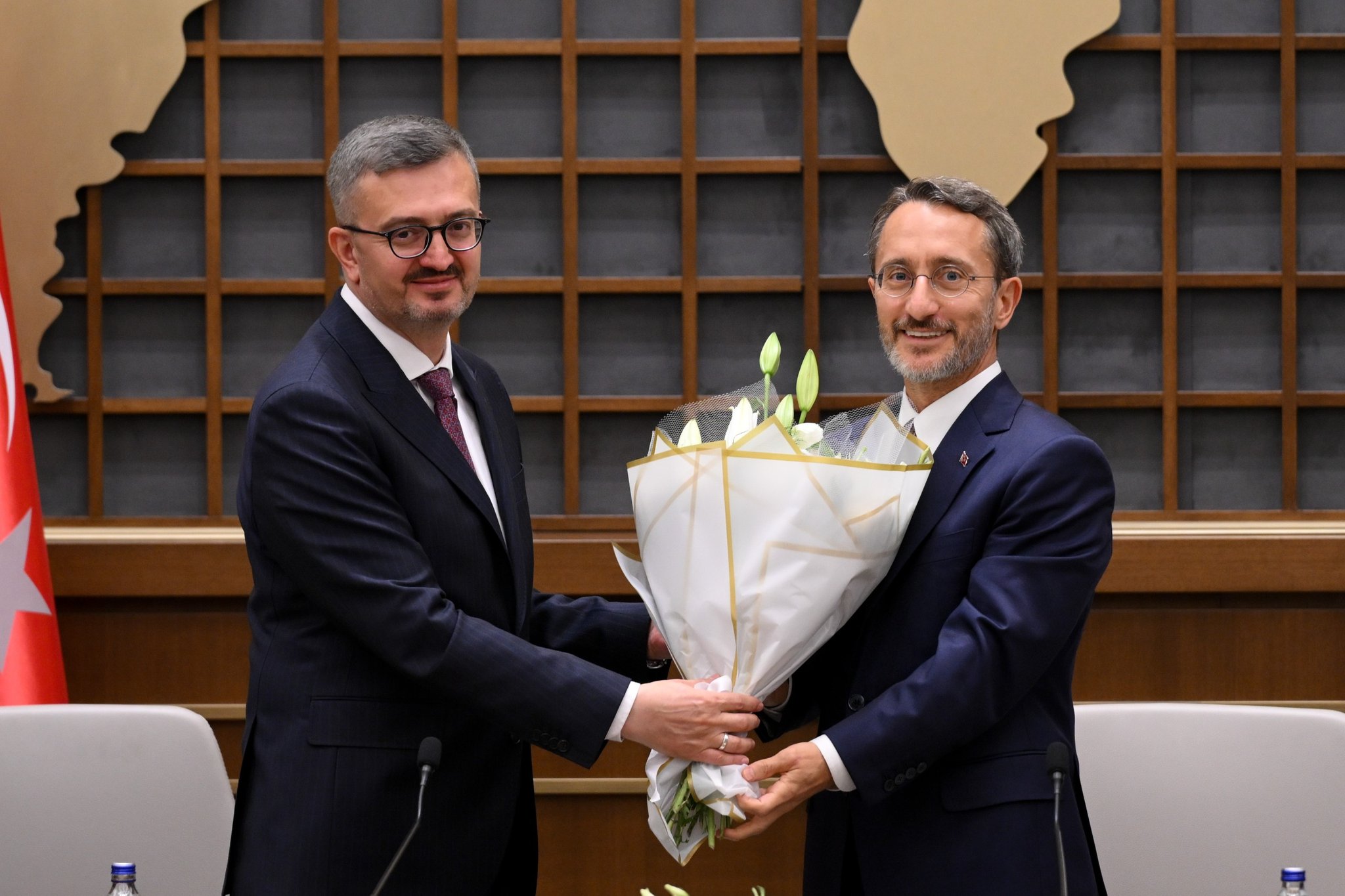
The conflict between Kalın and Altun reportedly escalated after Kalın replaced longtime intelligence head Hakan Fidan in 2023. Altun, dissatisfied with Kalın’s performance, began lobbying behind the scenes to point out what he perceived as Kalın’s failures. This included criticism of MİT’s handling of a 2024 terrorist attack by on Turkish Aerospace Industries (TUSAŞ), after which internal security footage was leaked to the media, an event that deepened tensions between the two.
Kalın is said to have compiled documentation of Altun’s alleged smear campaign against him and MİT, which he personally presented to Erdogan. These reports, according to insiders, played a key role in convincing the president to remove Altun from his post.
Another factor contributing to Altun’s downfall was his deteriorating relationship with the influential Albayrak family. When then-finance minister Berat Albayrak abruptly resigned on November 8, 2020, reportedly due to personal issues, no major media outlet, including Sabah, managed by his own brother, published the news for nearly 24 hours. Albayrak was forced to announce his resignation via Instagram, attracting widespread attention and fueling speculation that Altun had blocked media coverage. Sources say Altun also restricted Albayrak’s access to social media, exacerbating tensions.
Since that episode, relations between Altun and the Albayrak brothers have remained cold, with Bilal Erdogan also reportedly uncomfortable with Altun’s growing influence. Despite Altun’s central role in Erdogan’s media machine, he faced mounting internal criticism for his inability to manage public messaging during key political crises.
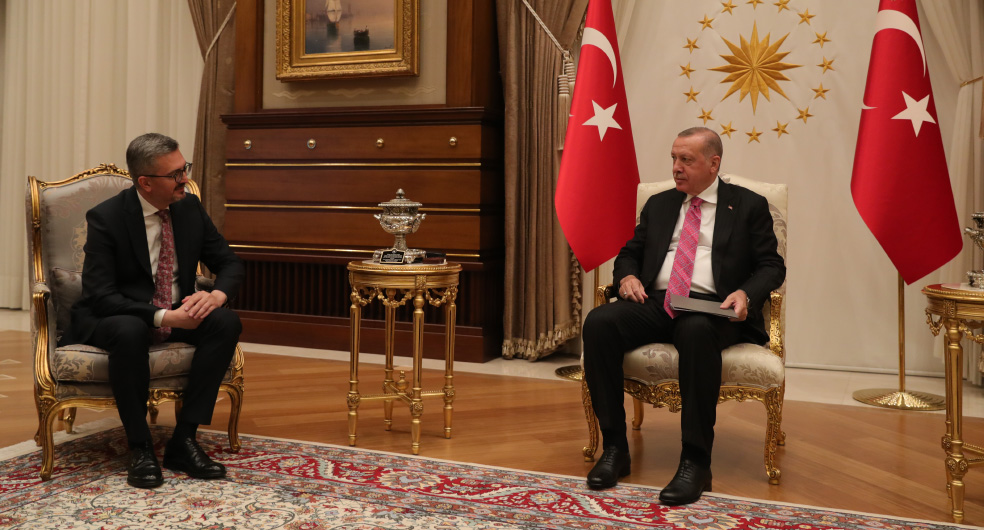
In particular Altun was blamed for mishandling the government’s narrative during a wave of arrests targeting opposition figures from the Republican People’s Party (CHP), including Istanbul mayor and presidential candidate Ekrem Imamoglu, who was later suspended from office. These actions were intended to undermine the opposition ahead of a general election slated for 2028, yet public opinion polls showed the ruling party losing ground, prompting further dissatisfaction with Altun’s performance.
Altun’s new position is head of the Human Rights and Equality Institution of Turkey, a largely unknown body to many in the country until his appointment. By assigning Altun to this passive and primarily symbolic role, President Erdogan appears to be sidelining him while still keeping him within the system and under control.
Meanwhile, Altun remains a board member of Borsa Istanbul, Turkey’s stock exchange. No developments have been reported regarding his status there. His continued presence was a part of Erdogan’s broader strategy of rewarding top bureaucrats in his inner circle by granting them multiple high-paying posts.
Altun’s wife, a sociologist and academic, was until recently a board member of Turkish Airlines, which is another example of political favoritism in appointments.
Altun’s replacement, Burhanettin Duran, is a loyal Erdogan ally with close ties to both the ruling Justice and Development Party (AKP) and the country’s intelligence community. A former director general of the pro-government SETA Foundation and a longtime academic, Duran previously served as deputy foreign minister although sources indicate that his appointment to the ministry was less about foreign affairs and more about monitoring Foreign Minister Fidan on behalf of the party leadership.
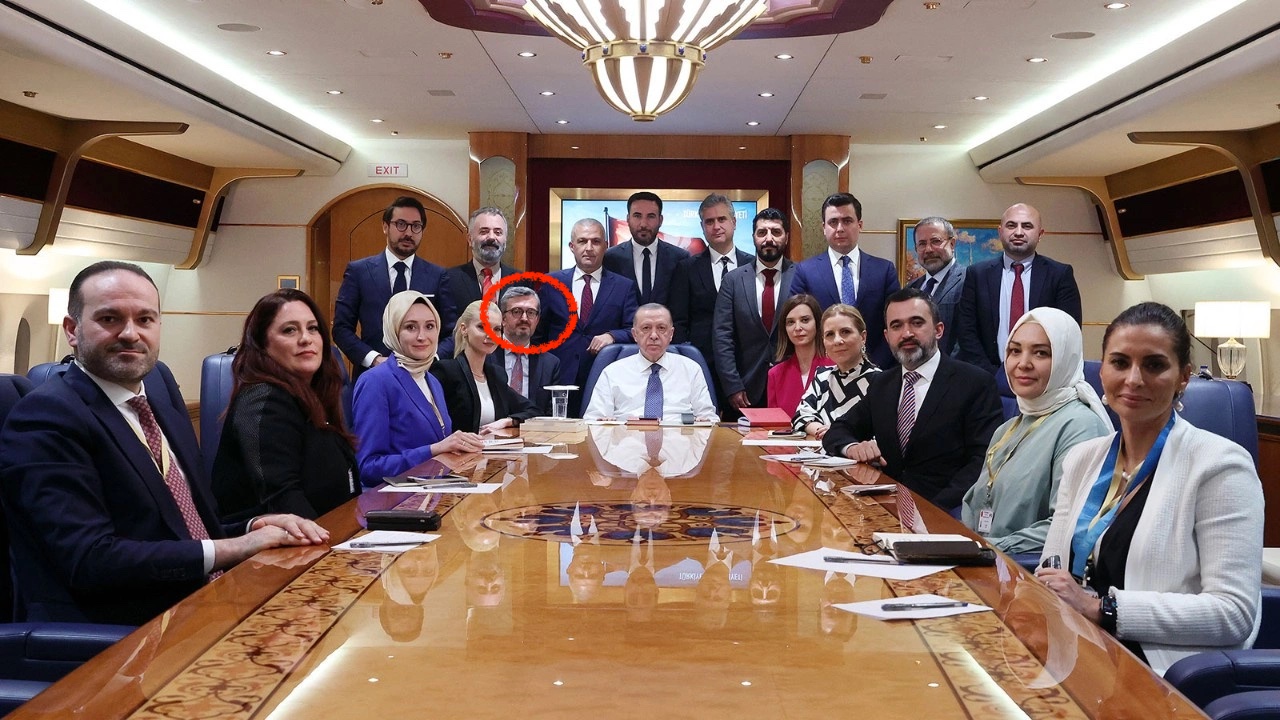
Duran and Kalın have worked together at SETA and share close ideological and personal ties. SETA has often been accused of functioning as a government propaganda tool and a recruitment ground for Islamist groups within the administration. Serhat Albayrak, who manages the Turkuvaz Media Group, continues to serve as SETA’s board chairman, effectively merging media control with political strategy.
Duran’s promotion to the head of the Directorate of Communications is viewed by many as a move to consolidate Kalın’s control over the institution. While Duran lacks Altun’s personal ambition and media aggression, his academic background and religious convictions have earned him the trust of Erdogan and the intelligence elite. Sources familiar with Duran describe him as diligent, bookish and career-oriented but not politically ambitious. These qualities made him an ideal candidate for the role, especially from Kalın’s perspective.
Duran has regularly accompanied Erdogan on international trips, often traveling on the presidential plane and appearing as a guest on pro-government television channels. Since 2018 he has served as a member of the Presidential Security and Foreign Policies Board. As a columnist for Sabah, he consistently defended government policies and advocated hardline stances on national security including Turkey’s controversial purchase of Russian S-400 missile systems.
In 2019 Duran argued that the S-400 deal was essential for Turkey’s sovereignty and strategic posture in the eastern Mediterranean. He harshly criticized opposition leaders who questioned the move, calling on them to support what he framed as a national security imperative. However, the acquisition led to Turkey’s expulsion from the US F-35 joint strike fighter program and resulted in diplomatic setbacks including concessions to Greece. The S-400s remain unactivated and stored in their original packaging.
However, as government policy shifted, a 2022 SETA report saw Duran and his colleagues admit that Turkey’s military and diplomatic position vis-à-vis Greece had worsened. They suggested that Ankara should reconsider and possibly refrain from purchasing a second batch of S-400s to help ease tensions with the West.
Despite his lack of overt political ambition, Duran has demonstrated a consistent pattern of aligning with power. During his years of study at Istanbul’s Bogazici University, he became affiliated with the Foundation for Science and Arts (BİSAV), an Islamist think tank co-founded by former prime minister Ahmet Davutoglu. When Erdogan moved to close down Sehir University, founded by Davutoglu, in June 2020 as punishment for his former ally’s political defection, Duran, who had served as a faculty member at the university, sided with the government. Kalın and Altun did the same. Ironically, Erdogan accused then-finance minister Mehmet Simsek of corruption in connection to Sehir University’s land acquisitions. Simsek later rejoined Erdogan’s cabinet in 2023 as finance minister.
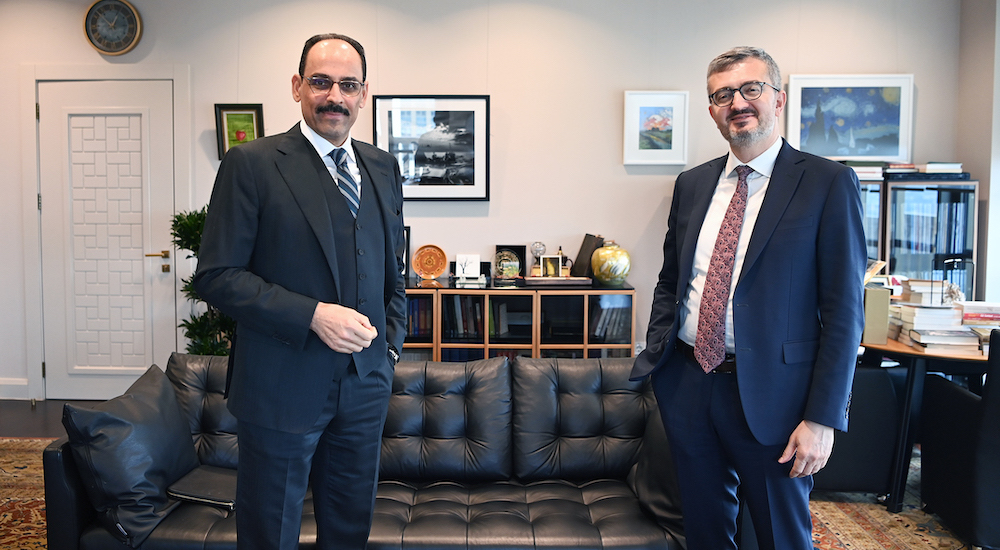
With Duran now heading the Communications Directorate, insiders suggest that Kalın will have full control over the institution, aided by the strategic appointment of deputy directors loyal to MİT. The shake-up reflects a broader pattern in Erdogan’s post-2023 administration: removing charismatic, autonomous figures and replacing them with technocrats, loyalists and intelligence-linked operatives.

